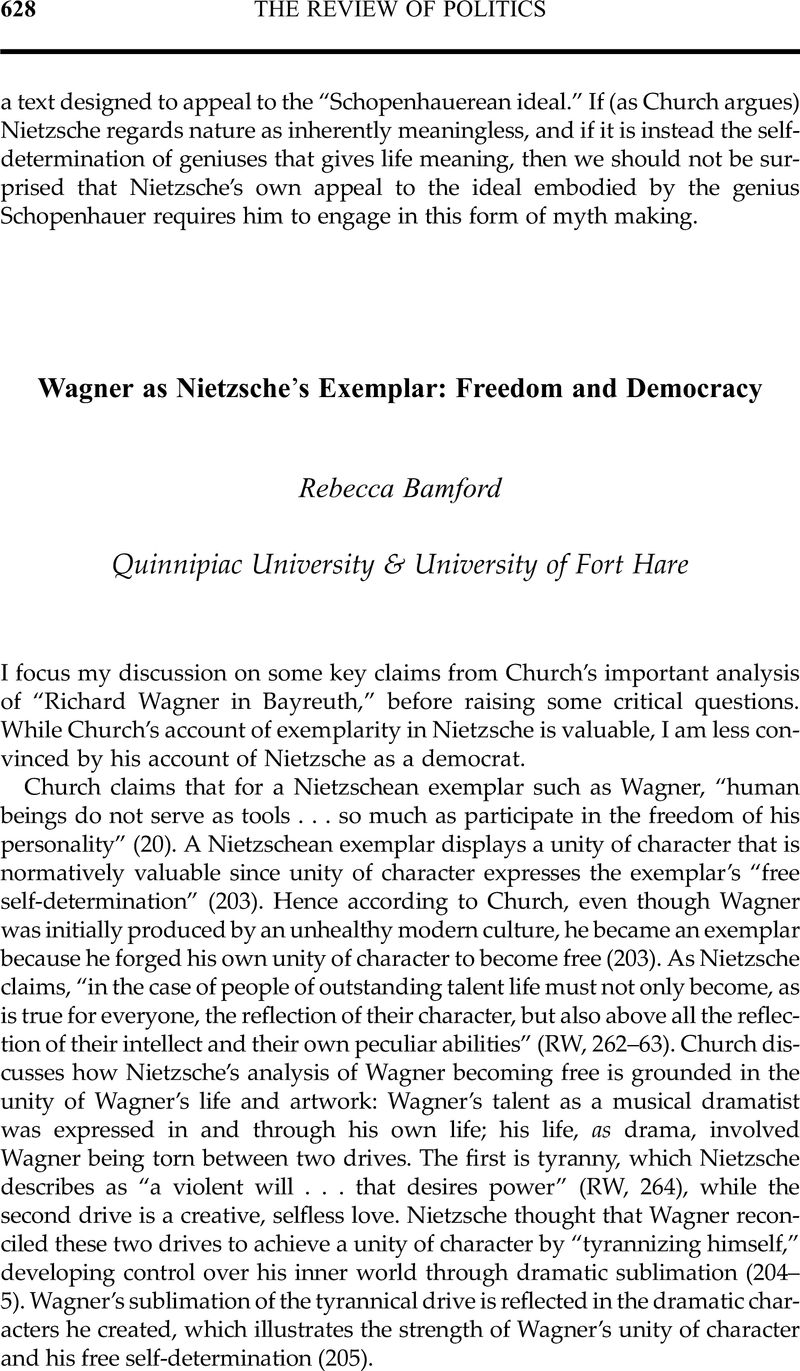No CrossRef data available.
Published online by Cambridge University Press: 21 September 2020

1 Cf. Ridley, Aaron, “Nietzsche on Art and Freedom,” European Journal of Philosophy 15, no. 2 (2007): 204–24CrossRefGoogle Scholar.
2 BGE §202 complains about resistance to exceptional claims, rights, and privileges and objects to “herd animal morality” and its expression in democratic structures, including what Nietzsche calls the “democratic movement” understood as “Christianity's heir” (cf. BGE §44). Nietzsche, Friedrich, Beyond Good and Evil, trans. Faber, Marion (Oxford: Oxford University Press, 1998)Google Scholar.
3 Church notes that in an 1883 letter to Peter Gast, Nietzsche indicated that SE constituted a “commentary” to Thus Spoke Zarathustra, and originates the concept of the Übermensch (149, 236). Nietzsche attributed legislative capability to exemplars of character type in BGE §211.
4 Cf. Bamford, Rebecca, “The Ethos of Inquiry: Nietzsche on Experience, Naturalism, and Experimentalism,” Journal of Nietzsche Studies 47, no. 1 (2016): 9–29CrossRefGoogle Scholar.
5 See Nietzsche, Friedrich, Dawn: Thoughts on the Presumptions of Morality, trans. Smith, Brittain (Stanford, CA: Stanford University Press, 2011), §560Google Scholar. Cf. Bamford, Rebecca, “Health and Self-Cultivation in Dawn,” in Nietzsche's Free Spirit Philosophy, ed. Bamford, Rebecca (London: Rowman & Littlefield International, 2015), 85–109Google Scholar.
6 Hatab, Lawrence, A Nietzschean Defense of Democracy: An Experiment in Postmodern Politics (Chicago: Open Court, 1995)Google Scholar. Acampora, Christa Davis, “On Sovereignty and Overhumanity: Why It Matters How We Read Nietzsche's Genealogy II:2,” in Critical Essays on the Classics: Nietzsche's “On the Genealogy of Morals,” ed. Acampora, Christa Davis (Lanham, MD: Rowman & Littlefield, 2006), 147–62Google Scholar.